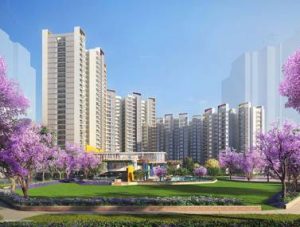Building on the themes of the 3R's, it is high time for the industry and government agencies to work together to improve real estate and the economy.
Indian real estate accounts for approximately 8% of the national GDP. In 2017, the housing market was only estimated at $ 180 billion, and it is expected to reach $ 650 billion by 2025. This industry will reach $ 1 trillion in another 5 years. The importance of the industry is further illustrated by the fact that a large workforce (around 40 million) depends directly or indirectly on the sector and around 250 ancillaries are associated with it.
Amid a massive and widespread role for the industry to play, it is natural that pressures on the Indian real estate sector have a cascading effect on the economy, which is already faltering in the face of a second lockdown.
The Indian real estate sector is experiencing stress and strain right now. While piles of unsold inventory over the years have affected the morale of many developers, the sudden shock of the lockdown has caused a temporary halt to sales. Although the positive side of the current conditions lies in the fact that cases have decreased in most of India and an economic recovery should soon take place. Rating agencies are optimistic about the outlook for India in fiscal year 22, despite the lax stance on economic growth.
Meanwhile, government and industry bodies must work hand in hand and develop a sustainable plan. Building on the themes of the 3Rs (relief, restructuring and resilience), a term originally coined by the World Bank, it is time for industry and government agencies to work together to improve real estate and the economy.
Relief to the Industry
An aid plan for the industry must be formulated, which should not only have political momentum but also windows to restructure loans in stressed and stalled projects. By reducing bad debts, not only will developers be given breathing space, but also financial institutions will also be relieved of the burden. The government of India should also seek direct political support, such as reducing stamp duty and collecting income tax returns to speed up sales. The industry has seen how stamp duty cuts in certain states like Maharashtra and Karnataka led to an increase in sales last year. Similar direct incentives can change the rules of the game
Meanwhile, the industry must take care of its employees and suppliers and provide them with financial safety and security. Another important step is to take the initiative and deliver the vaccination packages to the employees. Nothing could be suspicious of being attentive to the health of employees, in the midst of a medical crisis of this magnitude.
Restructure the Value Chain
In the middle and long term, it is necessary to restructure the industrial value chain with the help of technologies. After staying demure for the past few years, Indian real estate began to embrace the internet medium last year as the pandemic in its first momentum triggered broader behavioral changes.
The government and the industry body must work together not only to develop technological innovation, but also to scale it up rapidly. Through subsidies, discounts and other political incentives, the latest technology must be developed and implemented, both in construction management and in transaction cycles. This will help with consistent backward and forward integration, strengthen unit economies, shorten construction cycles, and improve overall operating flow. Likewise, academic institutions must also be linked to research and development (R&D).
In addition, the industry must rethink its product strategy and understand changes in consumer preferences. Demands are expected to increase in product categories such as home rentals, planned developments, affordable units, shared living spaces, and second homes. Industry players need to improve their strategy based on emerging product categories. The government must also support these efforts through policies.
Resilience - the Winning Mantra
While the relief measures will give breathing space and the restructuring will help to adapt to the new normal, the victory saga will depend mainly on one thing: how resilient we are in the face of the current crisis. Despite the fatigue caused by the pandemic, we have to get ahead of our game and work with a mindset of continuous improvement.

There is no shortage of demand for housing in the country. Favorable socioeconomic conditions, young demographics, an unprecedented rate of urbanization and infrastructure improvement, and an overall increase in household income will help the industry move on an upward trajectory. However, to take advantage of the market, we will need additional efforts at all levels: government, institutions and individuals.
Solid sales and marketing planning without incurring additional costs is the need of the moment. New trading strategies should be published that can boost the operating rate but at the same time contain CAPEX and OPEX. In this sense, franchises are a good option, as they provide a profitable platform to share resources optimally. Both the parent and the franchisee can enter new market segments and earn more profit without overhead.
Credit- The Financial Express Also Read- Home Loan Interest rate cuts to 6.66% in LIC housing finance






